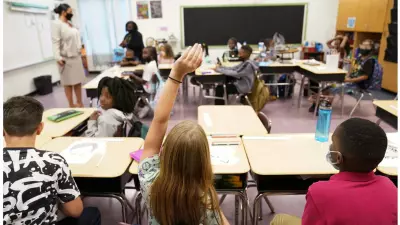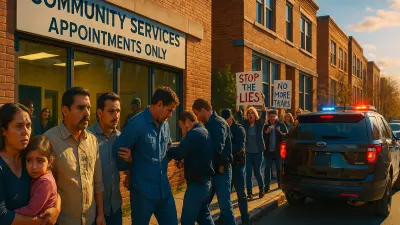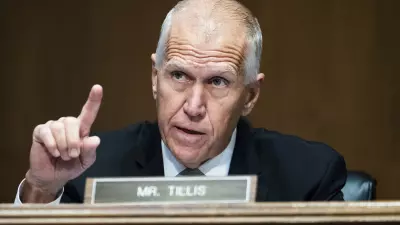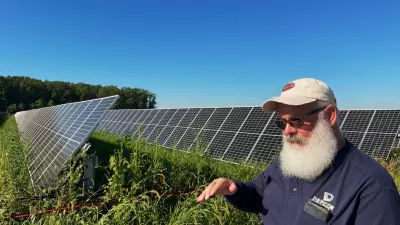Editor’s Note: The Rural Assembly — a program of the Center for Rural Strategies, which also publishes the Daily Yonder — conducted these focus groups with Generation Citizen and Making Caring Common.

Rural educators are looking for ways to integrate productive discussion of and interaction with social issues like LGBTQ+ rights, women’s rights, or racial inequality in their classrooms. However, challenges with community dynamics and district policies stand in the way, a recent focus group conducted by the Rural Assembly in collaboration with Generation Citizen and Making Caring Common revealed.
The findings, collected from nine rural educators from across the country, provide a sample of rural educator experiences that can inform how rural school teachers and administrators, community members and stakeholders, education researchers, and rural families approach social issues in the classroom.
While additional focus groups conducted by the partnered organizations had some rural presence, Rural Assembly focused specifically on the experiences of rural educators.
“We hoped to learn what types of social issues come up most often,” said Rural Assembly’s director of programs and partnerships, Taneum Fotheringill. “Some of the most common experiences we heard about were around students’ exploration of gender and pronouns, as well as the display of posters and items which have value statements associated with them.”
In the focus groups, many rural educators shared that they work to integrate social issues into lessons through readings, assignments and projects, and class discussion. Many felt that this information is important to learning empathy and fairness, as well as learning how to draw connections to personal experiences and respecting diverse viewpoints.
While the educators shared that they enjoy trust and familiarity in their relationships with families and community members, some also acknowledged that these very relationships can create challenges.
For example, if a parent or community member becomes concerned about a topic covered in the classroom, the controversy can quickly start to affect the teacher’s reputation in a small town, and could have negative effects on not only their professional life, but in their personal life.
Other teachers reported the opposite effect. “The cool thing about a small district is that most of these kids have grown up together,” one participant said. “Conflicts with parents kind of fizzle out really quickly.”
These conversations highlighted a “critical need for educators to feel that they have the resources and support to tackle issues which they are often discouraged or prevented from engaging in,” Fotheringill said.
These rural focus groups come on the heels of a nationwide movement to ban diversity, equity, and inclusion (DEI) efforts in higher educational institutions across the country. Since 2023, states have introduced 85 different bills that prohibit DEI offices and staff, ban diversity training, eliminate diversity statements, or bar affirmative action in admissions or employment. Public schools in at least 18 states also face instructional restrictions on race, gender, and other related topics.
As higher education institutions are responding with an attempt to rebrand their DEI efforts, EducationWeek reported that K-12 schools are also “evolving into a more general focus on belonging for all” to navigate the politicization of DEI terminology.
“Students are going to bring important matters and issues with them into the classroom whether it is planned or not,” Fotheringill said. “It’s important for young people to have trusted adults who they can discuss these things with, both at home and in other parts of the community like school.”
Fotheringill said that creating a framework for teachers to navigate these conversations will not only support teachers and students, but also parents and the community at large.
These rural focus groups were conducted to emphasize rural-specific needs in a free educator toolkit being disseminated by the Rural Assembly, Generation Citizen, Making Caring Common, and supported by New Pluralists.
Rural Educators Emphasize Neutrality and Structural Support
Prioritizing neutrality was a common goal for the participants. At times, this prevented some educators from discussing certain social issues due to their complexity or controversy. Others felt prepared to preserve neutrality and maintain respect when facilitating conversations and said they encourage students to express their views without fear of judgment or persuasion.
“I don’t ever try to persuade my students to believe what I believe either politically or religiously,” one of the participants said. “The biggest thing I try to convey to them is to be respectful of other people and understand that we’re all different.”
Educators reported a number of different successful methods when incorporating social issues in the classroom, including art projects, guest speakers, integrated history lessons, and diverse reading materials.
One educator plays a 10-minute news segment for students that sparks a class discussion about “issues that are going on around the world that [the] students may not experience themselves.”
Another educator holds formal debates in their classroom. “I try to keep it in the context of a debate,” they said. “With all the rules that one thinks of when they think of a debate.”
Participants shared that these social discussions generally do not occur organically among students during class, highlighting the importance of structured facilitation to encourage productive discourse.
The focus group found that another challenge that rural educators face is a web of complex interpersonal relationships among educators, parents, students, and administrators that educators are expected to serve as a bridge. This was particularly difficult in communities that are predominantly conservative or white, participants noted.
“Building that bridge block by block and [experiencing] burning and [being] paid so little,” one educator said. “It’s not something that [teachers] want to continue to engage in.”
This communication network can be beneficial in learning about the kinds of social issues that affect students and members in the community, but concerns and misconceptions in the community can become an obstacle in promoting inclusivity and fairness in the classroom, participants said.
Teachers advocated for structural changes within their school districts to overcome challenges with classroom discussion and community engagement.
“As teachers … we have to guard our viewpoints a little bit,” one participant said. “But as colleagues, why don’t we have more of these hard conversations?”
Unexpectedly, participants reported that the focus group gave them a greater sense of belonging and connectedness after speaking with rural teachers in other states, said Fotheringill, who helped facilitate one of the groups.
“I felt that the educators present left the focus group feeling a little more supported than when they arrived, even as we had discussed really difficult topics and dynamics,” she said.
Some educators shared that their district implements school-wide initiatives, like reading programs, that help encourage productive conversations in the classroom and the community.
Others reported policy constraints that make discussing certain topics like politics or LGBTQ+ issues even more difficult.
“I want everyone from admin, to teachers, to students to accept that social issues exist in our community,” one educator said.
Despite these challenges, educators shared that they continue to be optimistic and are determined to continue building bridges and starting conversations in their schools and communities
This story was originally published in the Daily Yonder. For more rural reporting and small-town stories visit dailyyonder.com.







